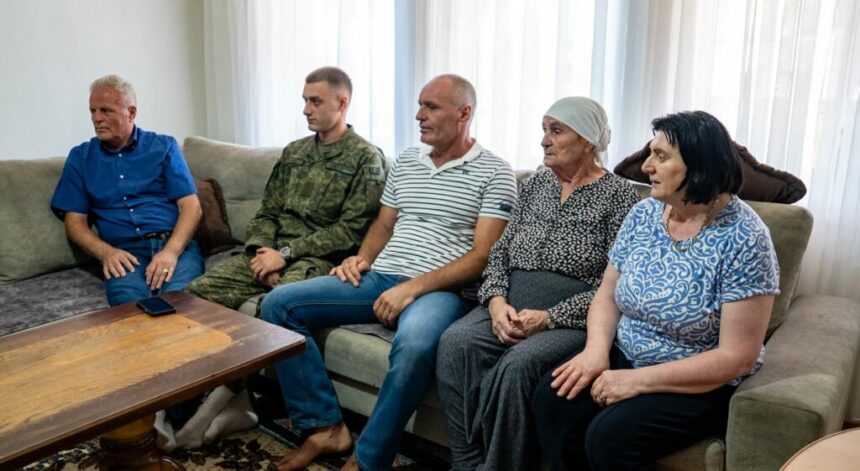Albanian families in southern Serbia are gripped by renewed anxiety over the potential return of mandatory military service in Serbia, evoking fears reminiscent of the 1980s and 1990s.
A Family’s Tragic Memory
For Sadik Sadiku from Rahovica, near Preševo, the word “army” recalls not protection, but hermetically sealed coffins. In 1982, his 25-year-old nephew, Yzeiri, died during service in the Yugoslav People’s Army (JNA). Authorities described it as a “suicide,” but the family has always doubted this, suspecting mistreatment or murder.
“I have three grandsons old enough for military service, but I will not let them go,” says the 82-year-old Sadiku.
Military Service and Community Concerns
Serbian officials, including Chief of General Staff Milan Mojsilović and President Aleksandar Vučić, have indicated that mandatory military service—abolished in 2011—may return, lasting 75 days. The first generation could begin early next year, targeting men aged 18–30, with alternative civilian options for conscientious objectors.
This announcement has deeply unsettled the Albanian community in the Preševo Valley, where memories of the 1980s—marked by ethnic tensions and pressure on Albanians—remain vivid.
“I would be concerned if I received such a summons,” says Valoni, 18, expressing fears of a repeat of past abuses.
Calls for Investigation
Shaip Kamberi, the only Albanian MP from the Preševo Valley, proposed a special commission to investigate the deaths of 135 Albanian soldiers in the JNA during the 1980s. However, with the Serbian Progressive Party holding the majority, Kamberi is not optimistic about approval.
Human rights researcher Natasha Kandić confirms that many deaths were suspicious, often reported as suicides or accidents, with families receiving sealed coffins and limited access to investigate.
Historical Cases Highlight the Risk
The deaths of Yzeiri Sadiku and Abedin Krasniqi illustrate the tragic fate of Albanian recruits in the JNA. Both were young, both faced suspicious circumstances, and both left lasting scars on their families. Investigations by organizations like KMDLNJ have documented over 115 such deaths, often obscured by official narratives.
Living Between Two Fires
Albanian families now face difficult choices: prevent their sons from serving, risking legal consequences, or have them comply, potentially confronting danger.
“We are between two fires: either prevent them from going or let them pack their bags and leave for Germany or Switzerland,” Sadiku laments.







